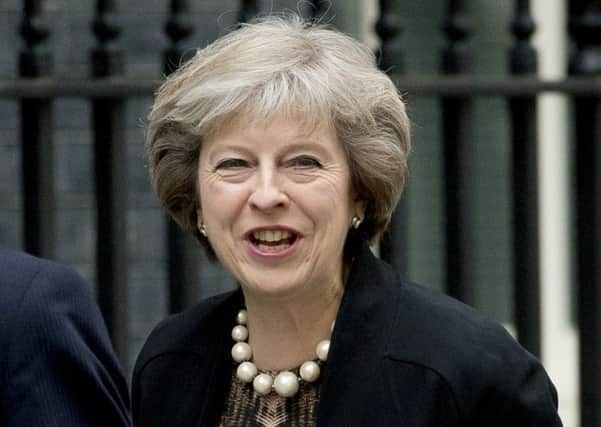Theresa May refuses to spell out plans for immigration


Facing her first grilling at the hands of Parliament’s Liaison Committee, Theresa May repeatedly dodged attempts to commit her to a vote on the final deal, stating only that there would be plenty of time for debate.
She also refused to say whether migration policy would be included in the plans she has agreed to publish before triggering Article 50, telling MPs she will release more details “when appropriate”
Advertisement
Hide AdAdvertisement
Hide AdThe comments – which will likely raise eyebrows among a number of backbench MPs – came during the first meeting of the Liaison Committee since Mrs May’s appointment as Prime Minister.
Made up of the respective heads of all House of Commons select committees, the panel quizzed the Tory leader about her plans for Brext and heath and social care funding,
Chief among their concerns was the Government’s promise to publish details of its negotiation strategy ahead of triggering Article 50, with MPs pressing the Prime Minister to set a date for its release.
But Mrs May refused to say when the plan will be published, stating only that she will provide more details about her approach to negotiations in the New Year.
Advertisement
Hide AdAdvertisement
Hide AdThe Leeds MP Hilary Benn responded by asking Mrs May whether the strategy will be published in time to allow effective scrutiny.
She assured him that Parliament “will have proper opportunity to be able to look at these matters before we trigger Article 50”.
He then asked whether she intends to give MPs a vote on the final Brexit deal.
But she would not be drawn on the issue, and simply repeated her claim that MPs will have “ample opportunity to comment on and discuss... the arrangements that we are putting in place”.
Advertisement
Hide AdAdvertisement
Hide AdThe chairman of the Home Affairs Committee, Yvette Cooper, pressed Mrs May to set out her policy for post-Brexit immigration.
She asked whether immigration controls will be included in the plans released to Parliament, to which Mrs May replied: “We are working on our proposals for immigration... When we feel it is appropriate to give any indications of those details then we will do so.”
Mrs Cooper then asked whether meeting net migration targets of less than 100,000 is a Government objective in Brexit negotiations.
The Prime Minister stated only that she wants to ensure “that it will be the British Government that will be making decision about the immigration arrangement for people coming from the European Union”.
Advertisement
Hide AdAdvertisement
Hide AdMrs May went on to affirm her commitment to completing both an exit from the EU and a new trade agreement with the bloc within the two-year time frame.
She suggested this parallel negotiation process – which lessens the need for a so-called “transitional” arrangement – is “implied” by Article 50 itself.
She also pledged to pursue a UK-wide approach to Brexit, on behalf of all devolved nations.
This was in response to the publication of a new paper by the Scottish First Minister Nicola Sturgeon, setting out how Scotland could remain in the single market without the rest of the UK.
The paper includes calls for a “substantial” transfer of new powers to Holyrood after the country leaves the EU.